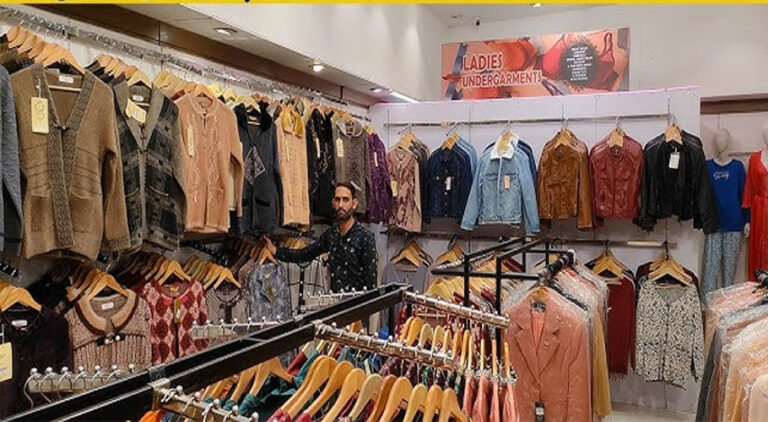The Evolution of E-commerce in Pakistan in 2024
Online shopping (e-commerce) is becoming a bigger and bigger part of Pakistan\’s economy. More and more people are using the internet to buy things, watch shows, and even get stuff done, like paying bills. This trend has gotten even stronger in 2024, thanks to better technology and people getting used to shopping online. It looks like e-commerce is here to stay in Pakistan.
Pakistan\’s economy is mostly cash-based and informal, with many transactions done in cash. Around 60 percent of the economy operates outside official records. Especially small and medium-sized businesses. Some government departments now offer online services, and in the private sector, four Pakistani airlines offer e-ticketing. Most local banks also have online banking services. Last year, the State Bank of Pakistan approved five new digital banking services. This area is expected to grow since there are about 87.4 million internet users in Pakistan, and this number is likely to increase a lot in the next five years.
Pakistan ranked as the 46th largest eCommerce market, with revenues of $5.2 billion. Social media is also popular, with over 7.3 million Facebook users, and many local businesses use it to promote their products and services. According to the Pakistan Telecommunication Authority, by the end of February 2023. There were 124.1 million 3G and 4G users in Pakistan, and the mobile banking sector is showing promise.
Growth factors
Online shopping (e-commerce) is booming in Pakistan for a few reasons. Here\’s why:
- The internet is reaching more and more people in Pakistan, making it easier for them to find online stores.
- With faster 3G and 4G internet on their phones, people can easily browse and buy things online, wherever they are.
- People are looking for easier ways to shop, and online stores offer the convenience of shopping from home at any time.
These factors combined are making e-commerce a major player in Pakistan\’s economy.
Current Market Trend
The e-commerce sector in Pakistan mainly sells consumer products and accessories. People shop online for electronics, look for jobs, get online education and counseling, buy and sell vehicles and computers, and find information on finances, food, groceries, and other products and services. The choices consumers make and the data from their activities are used for targeted advertising.
eCommerce Services
Google Chrome is the most popular browser in Pakistan, used by 56 percent of visitors. Next is Microsoft Internet Explorer/Edge, used by 21 percent. The other 23 percent of searches are done through Android, Safari, Opera, Opera Mini, UC Browser, and Maxthon.
Popular eCommerce Sites
Some of the top eCommerce websites in Pakistan are:
- OLX
- Daraz
- Spotify
- PakWheels
- Zameen
- Shophive
- Naheed Super Market
- Cheetay
- Food Panda
Online Payment
Industry reports show that 95 percent of e-commerce companies in Pakistan get paid through cash-on-delivery. This means they need a lot of cash on hand and have to hire teams to manage it, which raises their costs. Bigger e-commerce companies are starting to use digital payments and hope to encourage more customers to switch from cash-on-delivery to online payments.
Digital payments are still a challenge for e-commerce in Pakistan. Mobile banking options like EasyPaisa, JazzCash, and uPaisa exist but are not widely used. Also, only 24 percent of people in Pakistan have a bank account, which makes business more expensive for e-commerce companies.
The State Bank of Pakistan (SBP) launched a digital payment system called \”Raast.\” This system is meant to help individuals, businesses, and the government make financial transactions easily and affordably. It aims to support small payments and provide universal access to all parts of the financial industry.
Mobile eCommerce
With 3G and 4G services, more people in Pakistan are using the internet. Every year, the number of internet users goes up by more than 35 percent, and now there are over 100 million subscribers. Cheap smartphones, affordable 3G/4G services, and a middle class that enjoys buying things have made Pakistan\’s e-commerce mainly focused on mobile phones. Some e-commerce startups even say that over 75 percent of their customers use mobile devices.
Major Buying Holidays
E-commerce in Pakistan gets busy during holidays like Eid-ul-Fitr, Eid-ul-Adha, Black Friday, New Year, and the Wedding Season from October to April. Big sports events also make people buy related stuff more.
Social Media
The availability of mobile broadband and affordable smartphones has increased social media use. Popular platforms include Facebook, Twitter, Skype, and Instagram. Facebook is the most popular, with over three billion connections daily and more than 43.7 million users in Pakistan. Twitter is also growing quickly, with over 280 million connections daily. Google, YouTube, and Instagram are also widely used.
Challenges and opportunities
Even though online shopping (e-commerce) is growing rapidly in Pakistan, there are still some hurdles to overcome. For example, most people prefer to pay with cash when their order arrives (cash-on-delivery) instead of using online payments. There can also be issues with things like slow delivery or unclear rules.
But these challenges can also be opportunities! By coming up with new ideas and improvements, e-commerce companies can keep growing and succeeding.
The government is also helping by creating rules and systems that make online shopping safer and easier. For example, they might encourage people to use online payments more often.
The future of online shopping in Pakistan looks bright! The market is expected to keep growing, and there will be lots of chances for businesses to get creative and offer new things to customers. But companies will need to keep up with changing customer preferences, follow the rules, and use the latest technology to stay ahead of the competition.
Check Also :: The Future of work in the age of AI
Conclusion
In 2024, e-commerce in Pakistan has grown a lot and offers great opportunities. More people are using the internet, smartphones, and like shopping online. Even though there are challenges like most people still paying with cash on delivery, not enough good infrastructure. Some rules getting in the way, the e-commerce business keeps getting bigger. This is because of new ideas and help from the government. Looking ahead, e-commerce in Pakistan looks good. More money, better technology, and working together will make it even better, helping the economy grow and making shopping easier for everyone.






